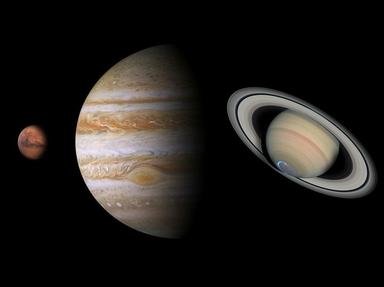Quiz Answer Key and Fun Facts
1. What is most likely to kill you on Mercury?
2. Which of these is the LEAST dangerous thing on Venus?
3. Which nation has lost more space travelers, the United States or the USSR? Note, this does not include those killed on the ground.
4. What would kill you the fastest on Mars?
5. Theoretically, even in a spacesuit, how far could you get into Jupiter's atmosphere before the *pressure* would kill you?
6. Of Jupiter's Galilean moons, where would the radiation levels kill you fastest?
7. What would be most likely to kill you on Titan, Saturn's largest moon?
8. Which of these gas giants has supersonic winds?
9. What is about the only thing on Uranus that wouldn't kill you?
10. Which of these factors actually proved most hazardous to the Apollo astronauts who landed on the moon?
Source: Author
parrotman2006
This quiz was reviewed by FunTrivia editor
rossian before going online.
Any errors found in FunTrivia content are routinely corrected through our feedback system.

